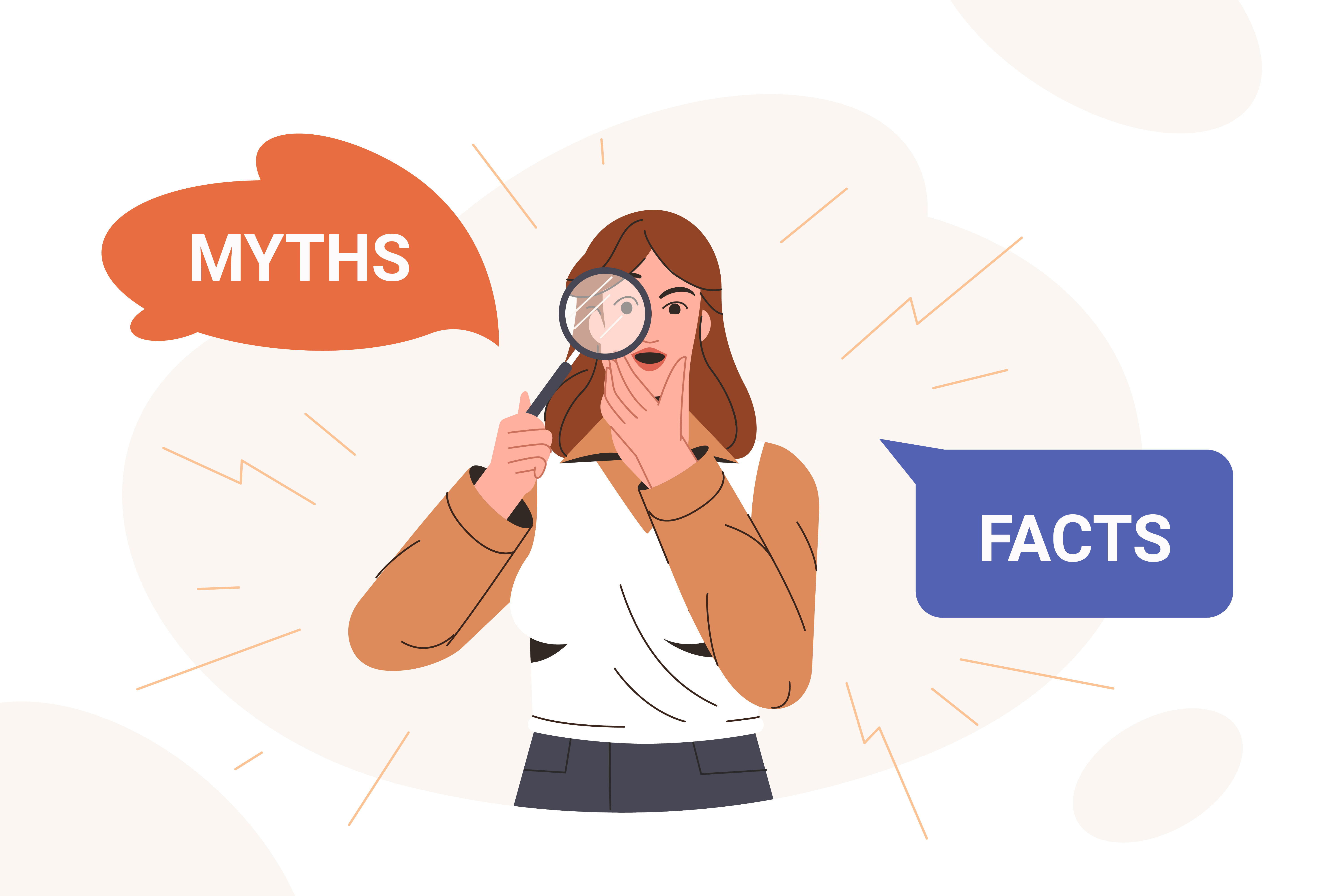10 Common Myths About Health Insurance

Health insurance has become a necessity amid the rising cost of healthcare facilities. And when you decide to purchase a health insurance plan for yourself, you might come across some misconceptions doing the rounds on health insurance. That is why it is important to understand the concept of health insurance thoroughly to make better choices for your well-being.
Here’s a list of common myths that people may tell you about health insurance.
Myth 1: Health Insurance Is Only for Older People
Fact: Medical emergencies come uninvited and can happen to anyone. That’s why it is advised to purchase a health insurance plan early on. Although older people are more prone to falling ill, health problems can occur anytime and to anyone. The younger you start, the earlier you’ll benefit from a lower premium and shorter waiting period.
Myth 2: I Don’t Need Health Insurance If I’m Healthy
Fact: It is great that you have optimum health, but nobody has seen the future. Investing in a good health insurance plan today will not only secure your future from unprecedented medical bills but also reward you for staying fit and healthy, thanks to the wellness programs.
Myth 3: Employer-Provided Health Insurance Is Enough
Fact: Many companies cover their employees under a group health insurance policy, but this plan comes with limited coverage, less flexibility, no choice of add-ons, and will cover you until you leave the company. This is why it is best to have an individual health insurance plan that gives you wider coverage tailored as per your needs.
Myth 4: Health Insurance Covers Only Hospitalization Costs
Fact: Today, a good health insurance policy is not limited to covering hospital bills only. You get many other benefits beyond hospitalization, including pre- and post-hospitalization expenses, daycare procedures, diagnostic tests, and even wellness programs. Some policies also cover alternative treatments like Ayurveda or homeopathy.
Myth 5: All Health Insurance Policies Are the Same
Fact: Every health insurance policy has a set of inclusions, exclusions, coverage scope, and varying premium. Identify your healthcare needs and select a plan that aligns with your health insurance needs and budget.
Myth 6: Pre-Existing Conditions Are Never Covered
Fact: You are eligible to purchase a health insurance policy even if you have some pre-existing medical conditions. There will be a waiting period, usually between 1 to 4 years, after which you can avail yourself of the policy benefits. You must ensure you disclose such pre-existing medical problems to your insurer while purchasing the policy to avoid claim rejections.
Myth 7: Filing a Health Insurance Claim Is a Hassle
Fact: With more digitization, you can now easily submit a claim from the comfort of your home. You also get the option to avail cashless treatment at network hospitals that eliminates the need to file a claim.
Myth 8: Maternity Coverage Is Automatically Included
Fact: Maternity expenses are not usually covered under a standard health insurance policy. However, these expenses can be covered as an add-on if available.
Myth 9: Health Insurance Is Too Expensive
Fact: The premium amount of health insurance is based on your age, members covered, medical history, coverage selected, and add-ons, if any. Given the scope of coverage you get with a comprehensive health insurance plan, the premium amount seems affordable. Additionally, under Section 80D of the Income Tax Act, you can claim tax benefits on premiums paid, making it a financially savvy choice.
Myth 10: Buying Health Insurance Online Is Risky
Fact: Reputable insurers have secure payment portals that ensure your personal and banking information is kept confidential from potential scammers. Always ensure the website is official or authorized before making a transaction.
Conclusion:
With the right knowledge and understanding, you can easily navigate your way through health insurance. Whenever in doubt, consult a professional advisor or your insurance company to inquire about your health insurance policy, its benefits, and other terms and conditions.
Disclaimer:
This blog is for informational purposes only and does not constitute financial or medical advice. Always consult with a licensed professional or your insurance provider before purchasing your health insurance policy.


